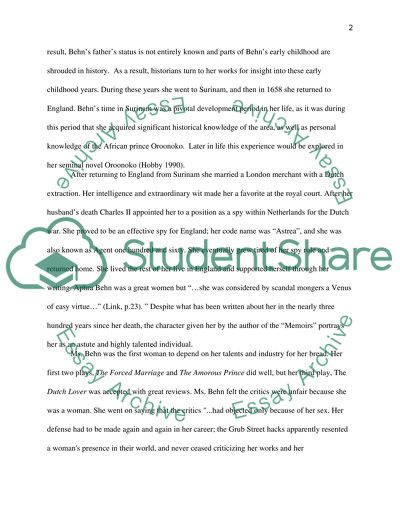Cite this document
(Aphra Behns Life, Canon Term Paper Example | Topics and Well Written Essays - 2000 words, n.d.)
Aphra Behns Life, Canon Term Paper Example | Topics and Well Written Essays - 2000 words. Retrieved from https://studentshare.org/biographies/1567871-aphra-behn
Aphra Behns Life, Canon Term Paper Example | Topics and Well Written Essays - 2000 words. Retrieved from https://studentshare.org/biographies/1567871-aphra-behn
(Aphra Behns Life, Canon Term Paper Example | Topics and Well Written Essays - 2000 Words)
Aphra Behns Life, Canon Term Paper Example | Topics and Well Written Essays - 2000 Words. https://studentshare.org/biographies/1567871-aphra-behn.
Aphra Behns Life, Canon Term Paper Example | Topics and Well Written Essays - 2000 Words. https://studentshare.org/biographies/1567871-aphra-behn.
“Aphra Behns Life, Canon Term Paper Example | Topics and Well Written Essays - 2000 Words”. https://studentshare.org/biographies/1567871-aphra-behn.


